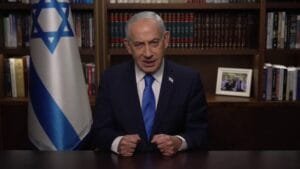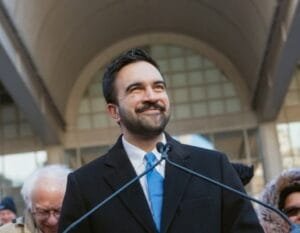Hochul revises Manhattan congestion pricing amid pushback
New York Governor Kathy Hochul has reintroduced the controversial Manhattan congestion pricing plan, aimed at funding the Metropolitan Transportation Authority (MTA), but it now faces both political opposition and ongoing legal battles.

New York Governor Kathy Hochul has reintroduced the controversial Manhattan congestion pricing plan, aimed at funding the Metropolitan Transportation Authority (MTA), but it now faces both political opposition and ongoing legal battles.
On Nov. 14, Hochul announced a revised toll structure, lowering the peak-hour rate from $15 to $9 for most vehicles. “As I said from the start, a $15 toll was just too high in this economic climate,” Hochul stated. “That’s why our plan cuts the daytime toll to $9 for cars. By getting congestion pricing underway and fully supporting the MTA capital plan, we’ll unclog our streets, reduce pollution and deliver better public transit for millions of New Yorkers.”

The tolling program, set to launch in January — likely on January 5 — is a critical part of a funding strategy for the MTA, which had previously halted over $16 billion in infrastructure projects due to the uncertainty over the toll’s implementation. However, the revised toll rate is projected to generate about $500 million annually, far less than the $1 billion the original plan had anticipated, leading to questions about how the MTA will meet its financial needs. Despite these concerns, a state official assured the *New York Times* that the lower revenue would still allow the MTA to secure bond financing, albeit with a longer repayment period.
Opposition to the plan remains strong. President-elect Donald Trump, who had previously vowed to “terminate” congestion pricing, reiterated his stance on social media, claiming that businesses would “flee” the city due to the tolls. Trump’s opposition, alongside legal challenges from multiple groups, continues to complicate the plan’s rollout. Governor Phil Murphy of New Jersey, whose state is party to one of the lawsuits, called the plan “a way to take money from the pockets of New Jersey residents to bail out the MTA from a mountain of debt.”
The project still requires approval from the U.S. Department of Transportation before moving forward, a step the city hopes to complete before Trump’s inauguration. Despite these hurdles, the MTA’s board is expected to vote on the revised tolling proposal next week, signaling the next phase in what has become a high-stakes battle over New York’s future transit funding.














